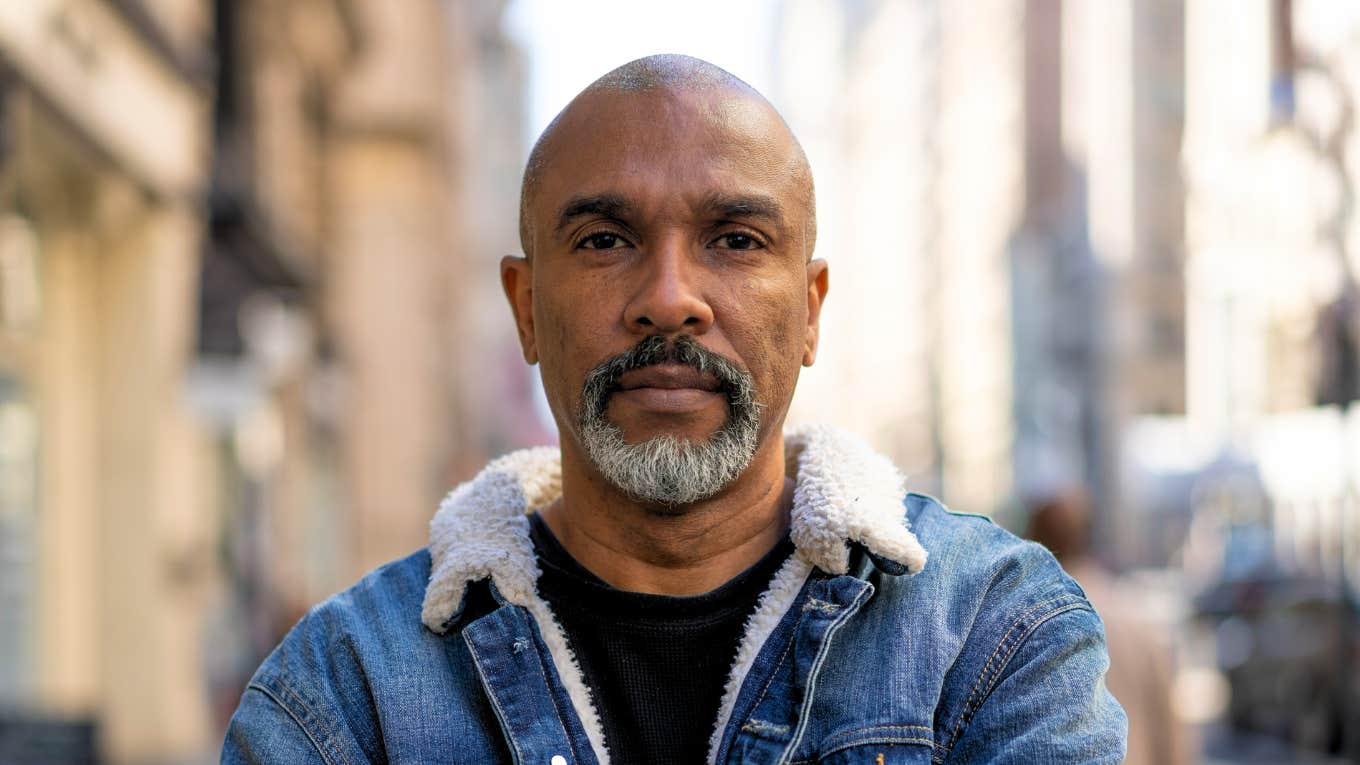10 Things Boomers Think Are Common Sense But Are Actually Trauma Responses
Their beliefs often stem from coping mechanisms used in response to difficult situations.
 blvdone | Shutterstock
blvdone | Shutterstock Most Boomers grew up with ideas and beliefs that many of us consider unconventional today. As adults, they often preached these ideals to younger generations. However, many fail to realize that this Boomer behavior frequently stems from well-intentioned coping mechanisms in response to difficult situations. Eventually, they may evolve into patterns of thought or behavior that can hinder their emotional health and growth.
These are often the things Boomers think are common sense but are actually trauma responses. Recognizing these traumas will help them heal and create healthier coping strategies more aligned with their emotional well-being.
Here are 10 things Boomers think are common sense but are actually trauma responses:
1. They push through tough times
 Nikitaat Yakmakov | Shutterstock
Nikitaat Yakmakov | Shutterstock
While all of us are bound to encounter tough times, some Boomers tend to think that the best approach is to endure them without any emotional expression or pause to catch their breath.
Growing up, they may have been told that falling apart now and then was a sign of weakness and that they should suppress their feelings as a way of surviving emotionally difficult situations.
However, Boomers are human above all else, and are entitled to experience the emotions we all feel when going through tough times. Holding it all in does more harm than good.
A 2013 study by the Harvard School of Public Health and the University of Rochester showed that people who “bottle up” their emotions increase their risk of a premature death from any cause by more than 30%, and the concomitant risk of being diagnosed with cancer increases by 70%.
2. They believe crying is a sign of weakness
 goffkein.pro | Shutterstock
goffkein.pro | Shutterstock
Boomers grew up in a culture where vulnerability was often viewed as a flaw. They were encouraged to refrain from shedding tears when they were upset. Since they were never allowed to show any signs of sensitivity, they may believe that any form of emotional expression is weak.
Believe it or not, crying when we are emotional is detrimental to both our physical and mental well-being. According to research, tears contain stress hormones that crying helps eliminate from the body.
Suppressing these normal emotions may only exacerbate the issues that make us sad. Despite what Boomers may have been taught to believe about them, there is nothing weak about expressing your emotions through tears.
3. They're grateful for what they have
 Perfect Wave | Shutterstock
Perfect Wave | Shutterstock
While it is important to be grateful for all the good things that have happened in life, some Boomers were told that this was all they should focus on. Even though this may appear to be a useful lesson on gratitude, it can sometimes dismiss feelings of pain or need.
Many Boomers were never taught that it is possible to exist in parallel. You could be grateful that you have a roof over your head and food on the table while being sad that you may not have a lot of friends or family members to experience it with. Feeling sadness on what you might not have does not negate your appreciation for the things you do.
Constantly feeling the need to be grateful for what they have may be a trauma response for Boomers whose emotions were invalidated.
4. They minimize their pain (there's always someone else who has it worse)
 F01 PHOTO | Shutterstock
F01 PHOTO | Shutterstock
Some Boomers tend to downplay their painful experiences since they were often reminded that “others have it worse” whenever they vented about their pain.
However, just because someone you know may be going through chemotherapy and surgeries doesn’t mean that your broken finger doesn’t hurt. Our pain is valid, no matter how insignificant it may seem in the big picture.
Other Boomers who have experienced trauma may even use this idea as a coping mechanism to avoid confronting difficult emotions by comparing their pain to others.
5. They think being tough builds character
 RealPeopleStudio | Shutterstock
RealPeopleStudio | Shutterstock
Some Boomers were taught that enduring hardship without showing emotion would result in strength. However, this avoids a healthy way of processing emotions and vulnerability, causing emotional suppression that will only cause them deeper inner pain.
Still, they may choose to believe that remaining tough at all times builds character since they never allowed themselves to tap into their genuine emotions and see for themselves what would happen if they dropped the tough act.
While facing and overcoming adversity can indeed contribute to character development, there are plenty of other ways to show strength while still allowing yourself not to be so emotionally tough all of the time.
6. They believe love and respect should be earned
 fizkes | Shutterstock
fizkes | Shutterstock
Some Boomers were raised with the idea that the bare necessities they should have been receiving from their parents, such as love and respect, had to be worked for. No matter how hard they tried, some felt unworthy of either unless certain conditions were met.
However, love and respect, especially if you are a child, should not be tied to certain achievements. This idea can result in unresolved trauma that Boomers may have imposed on their children.
7. They know they'll be rewarded for hard work
 Asian Isolated | Shutterstock
Asian Isolated | Shutterstock
While we should all strive to work hard, this doesn’t always necessarily mean that we will gain the reward we hope for. In fact, this idea that many Boomers were taught only perpetuates the idea that the only way to achieve any self-value or worth is by constantly working, even if it means pushing your boundaries and self-sacrifice.
Jeff Shannon, an executive coach and author of “Hard Work is Not Enough: The Surprising Truth about Being Believable at Work,” told BBC News that while hard work can certainly help you establish yourself in your career, it will not always be enough to take you to the top.
“At a certain point, you look around and realize, wow, everyone works hard at this level,” he reveals. “Expertise and hard work just become the expectation, and will not help you up the ladder.”
The mindset that you need to work hard to be rewarded often stems from a trauma response tied to survival.
8. They pray their struggles away
 Josep Suria | Shutterstock
Josep Suria | Shutterstock
Some Boomers grew up believing that spiritual or moral solutions are all that is needed to resolve their issues. Many Boomers were raised in religious families, with 57% reporting having attended religious services with their families at least once a week during their childhoods. 71% of those raised in Catholic households attended Sunday school or a religious education program at least weekly, per The Survey on American Life.
Since prayer and faith played an integral role in their lives, some Boomers believed all they had to do was pray and their struggles would magically disappear. However, it takes more than just the power of prayer to resolve pain and trauma.
Even though many Boomers could have benefited from therapy, there was often a stigmatization of mental health support. To this day, some of them still choose to pray their problems away to avoid seeking professional help.
9. They don't rely on others
 F01 PHOTO | Shutterstock
F01 PHOTO | Shutterstock
Many Boomers grew up with parents who were not nearly as supportive and emotionally involved as they tend to be today. Many of them believed that children didn’t need to be coddled and that they should only rely on themselves to meet most of their needs.
The idea that you should strive to be independent and avoid relying on others for help can be a trauma response in Boomers who may have experienced abandonment and emotional neglect at the hands of their parents.
What many of them fail to understand is that life would be impossible without occasional help from others. “Asking for help is hard, but others want to help more than we often give them credit for,” Stanford social psychologist Xuan Zhao told the Stanford Report.
Seeking help is not a sign of incompetence in living independently. Even the most self-sufficient people need help occasionally!
10. They suck it up and move on
 Jacob Lund | Shutterstock
Jacob Lund | Shutterstock
While we should try our best to move on from our painful experiences and find healing, they should never go unacknowledged. Some Boomers believe that to move on from their trauma truly, they must forget about and move forward with their lives. However, this will only hold them back.
Refusing to deal with pain, discomfort, or loss may stem from a history of emotional neglect that needs to be addressed. Boomers who have experienced this trauma may think that avoiding their emotions instead of processing them will help them move on.
“What, then, are we to do with emotions? Instead of suppressing or excessively expressing them, we need to accept and respond to them,” psychotherapist Katherine Cullen told Psychology Today.
“Accepting and responding to an emotion entails noticing its presence (often, its physical presence in our body), softening our resistance to it, tuning into what it's trying to tell us, and using that information to inform (but not dictate) our behavior.”
You should never feel like you have to “suck up” your pain. It should be something you should openly be able to acknowledge to move toward healing that will genuinely help you move on from it.
Megan Quinn is a staff writer with a bachelor's degree in English and a minor in Creative Writing. She covers news and lifestyle topics that focus on justice in the workplace, personal relationships, parenting debates, and the human experience.

